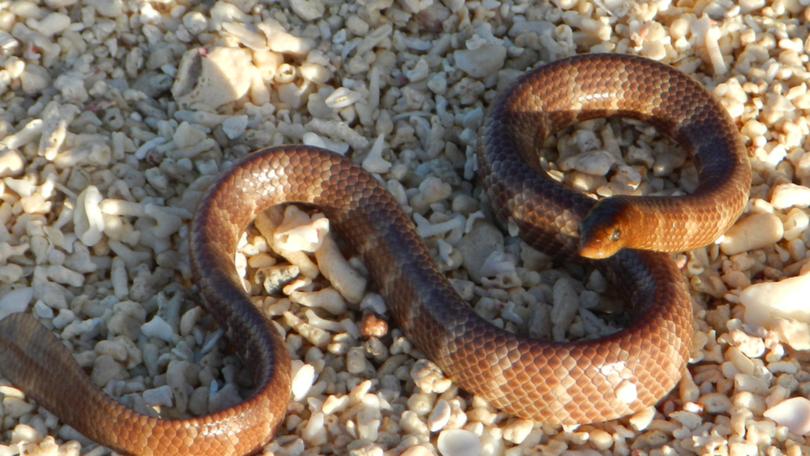Woodside Energy faces another slippery problem for Browse LNG with the dusky sea snake deemed endangered
The Federal Government has ruled out a review of Browse Basin oil and gas projects after listing a new endangered species — with no impact expected to Woodside Energy’s $29 billion LNG plans.

The Federal Government has ruled out a review of Browse Basin oil and gas projects after listing a new endangered species — with no impact expected to Woodside Energy’s $29 billion LNG plans.
The dusky sea snake lives in reef habitats off the Kimberley coast, a key precinct for Australia’s enormous energy industry.
The marine animal’s new endangered status was granted on Wednesday and a briefing note by the Federal Environment department called for further scrutiny of development through the Basin.
Sign up to The Nightly's newsletters.
Get the first look at the digital newspaper, curated daily stories and breaking headlines delivered to your inbox.
By continuing you agree to our Terms and Privacy Policy.But the bureaucracy will not be reassessing oil and gas projects in the region.
“This is simply advice from a committee established by John Howard,” Environment Minister Tanya Plibersek said.
“It doesn’t dictate government action or decision making in any way.”
The sea snake is found at Scott Reef, situated above a huge proposed Woodside gas field.
An industry source said the impact of the endangered species listing on Woodside’s $29 billion Browse LNG project should be minimal.
The Perth-based gas giant says the sea snake was factored into its environmental approval submissions and it’s understood the marine animal had previously been registered as endangered on a separate classification system.
Woodside already has its work cut out to convince State regulators to back development after the Environmental Protection Authority issued a “preliminary view” that Browse was unacceptable.
The ASX20 company has pledged to sharpen up environmental protections at the project following concerns about the impact on green turtles and whales.
It added that there would be no drilling on the reef and mitigation measures would avoid any impact on the snake.
“While the Browse development would occur in the vicinity of the Scott Reef region, no activities or planned impacts are expected to affect the type of complex reef habitats that are the primary habitat of the dusky sea snake,” a spokesman said
The department’s briefing note said it “inferred” oil spills and marine noise had a significant impact on the sea snake — and warned there must be an effective strategy in place for potential spills.
Climate change was also affecting the snake, the note said.
“The stronghold for the dusky sea snake is the Scott Reef complex, which sits above the extensive Torosa gas field that is slated for development (by Woodside),” the briefing said.
It had said a review of oil and gas in Browse would “determine if known and potential impacts to the dusky sea are adequately considered and avoided”.
But no recovery plan for the snake was needed, the listing shows.
Conservation Council executive director Jess Beckerling said the project must be refused to protect the sea snake.
“The government must heed the Federal Department’s call for an urgent review of potential impacts from Woodside’s plan,” Ms Beckerling said.
“After many years of trying, Woodside has been unable to find a way to develop Browse without unacceptable risks.
“There is now yet another reason that Woodside’s Browse proposal cannot be approved.”
The Federal Government did not immediately respond to a request for comment.
